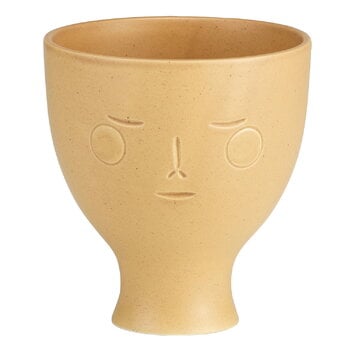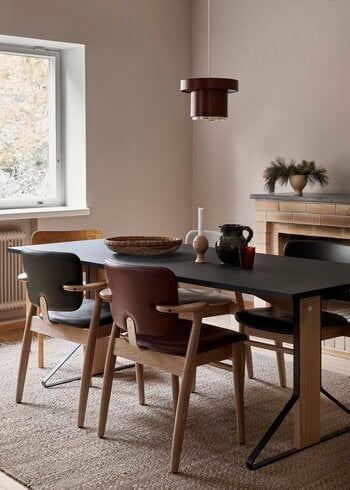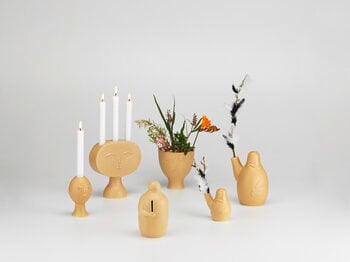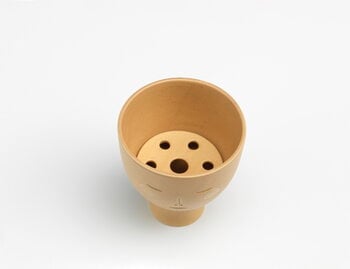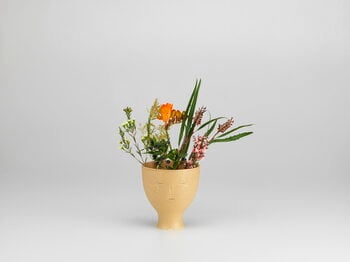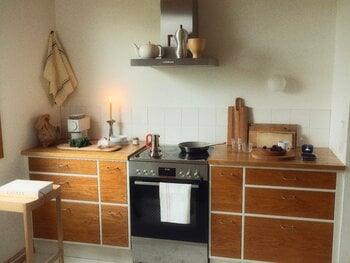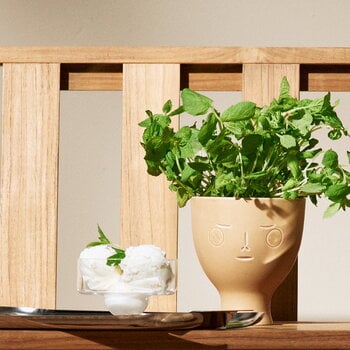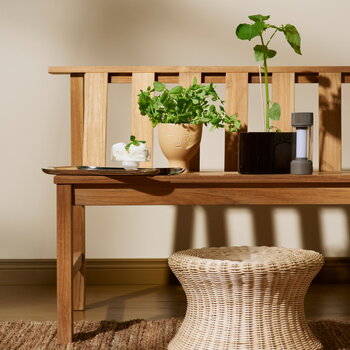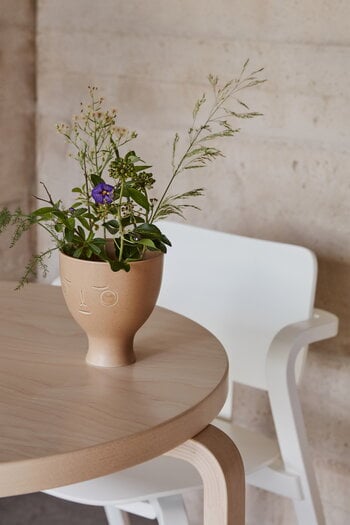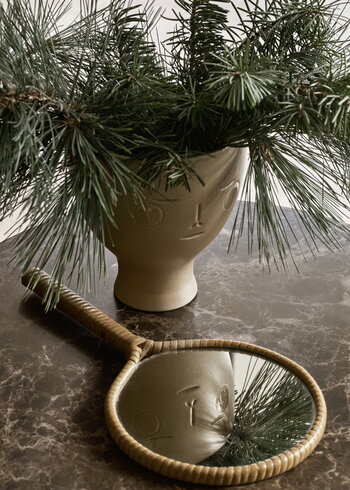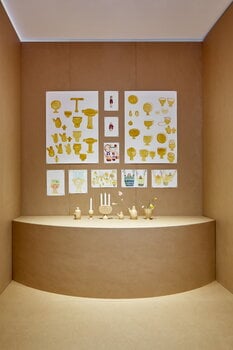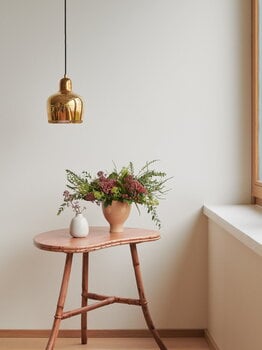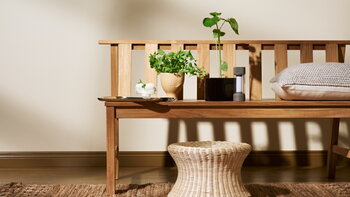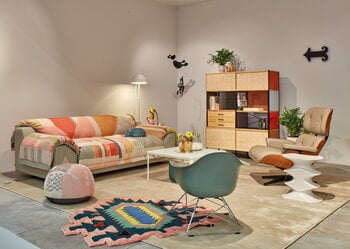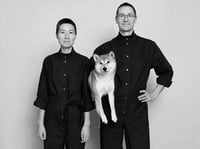Midsummer Dream vase is an expressive ceramic object designed by the Finnish COMPANY for Artek. According to Finnish folklore, one who collects seven wildflowers and sleeps with them beneath a pillow on the Midsummer night will see their future spouse in a dream.
Designed by the Finnish-Korean designer duo COMPANY and released in 2019, the ceramic objects are part of the FIN/JPN Friendship Collection by Artek. The collection celebrates the 100th anniversary of diplomatic relations between Finland and Japan. When designing the objects, COMPANY imagined what kind of gifts the Finnish delegation could have brought with them to Japan a hundred years ago. Each of the handmade, charmingly naive objects celebrates one seasonal ritual of the Finnish calendar.
